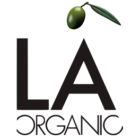From an ecological model to an intensive industry
We humans learned more than 10,000 years ago how to get a higher return from the plant resources nature gave us by domesticating different species, thus creating agriculture and allowing us to move from a nomadic lifestyle to one based around settlement. Thus we began our journey towards civilization. For thousands of years we leveraged techniques that harnessed solar energy and local resources to exploit the land, but in the twentieth century came a revolution in the escalation of the use of fossil fuels for farming and chemicals to boost crop performance, with the consequent environmental impact. The growing demand for food products due to the exponential rise in population (one billion people in the year 1800 compared to more than seven billion by 2011) has only made it worse. The modern agrofood system has undergone a watershed change in recent years towards a more respectful and sustainable model to not only reduce industry’s footprint on the natural environment but also because numerous studies have shown that, in health terms, it is better to eat organic.
Responsible farming
The use of fossil fuels has triggered a surge in the effect of greenhouse gases, known to directly impact the size of the ozone layer, global warming, acid rain and smog. The density of forest cover can counteract the impact of GHGs, as plants are carbon reserves in the form of biomass and contribute through photosynthesis to bringing down carbon dioxide levels in the atmosphere. Farming, when done in environmentally friendly conditions, can contribute to biodiversity and stop erosion and desertification. Woody plant species such as trees are particularly efficient in this regard.
According to a study by the University of Cordoba’s Ecological Livestock Chair (Ecovalia), olive groves have especially efficient qualities for the mitigation of greenhouse gas emissions, since the olive is a slow-growing woody species (meaning a high long-term sequestration of biomass and hence mitigation of carbon build-up). Olive cultivation is distinguished as one of the main crops in Spain.
Andalusia is home to the largest olive-growing areas in the country, and increasing stretches of land are being turned over to environmentally friendly organic farming techniques.
In Spain, meanwhile, organic production has been regulated since 1989. Spain has more land devoted to organic farming than any other country in the European Union (just over two million hectares in 2017). It is also among the top five nations in the world and climbing (4.7% average annual growth in total area in the past five years).
But what exactly is organic farming?
Organic or biological farming is understood as the production system that efficiently harnesses natural resources while reducing the environmental impact. It produces no contaminating waste and preserves nature’s biological cycle. Organic farming entails suppressing the use of synthetic chemicals and genetically modified organisms to produce quality produce and ensure food safety.
It also has positive effects on the environment, encouraging rural development, boosting soil fertility, preventing forms of pollution, preserving biodiversity and enhancing the quality of life on the land. It is environmentally sustainable and economically profitable.
Why is it good for us to consume organic products?
The fruits of organic farming are free of pesticides, i.e., the chemicals used in conventional farming which have adverse health effects (for farmers and consumers) and which damage the natural environment. They are also free of genetically modified organisms, or transgenic products, whose long-term effects are unknown and which contribute to the loss of biodiversity.
Organic products are free of synthetic additives, making them more nutritious, and antibiotics (in the case of livestock), so there is no risk of these chemicals entering and being stored in our bodies and tissues, where they release toxins that affect our wellbeing.
Lastly, and bearing in mind that organic foods respect and help preserve the environment, they are also much tastier, as plants can develop at nature’s pace, meaning they are in an optimal condition to produce the highest quality fruits.
Organic farming and tourism
Farming and tourism are extremely important to the Andalusian economy and society. Specifically, organic farming accounts for over 42,000 jobs, its income exceeds €400Mn and it has an export value of €680Mn (around half the Spanish farming total). Leading organic industries include vegetable packing, followed by olive oil mills (412, many open for tours).
Andalusia’s main organic crop is olive oil (76,982 hectares under organic olive cultivation).
Gastronomy has long been an important part of Spanish and Mediterranean culture. Spain and Andalusia boast a significant food heritage and legacy, and this wealth is accompanied by leading practices in the production of best-in-class foods. All of this provides a hallmark guarantee when it comes to enjoying a typical and traditional gastronomy that respects the environment and retains all its flavour and authenticity, the key elements in high-end, sustainable tourism.
